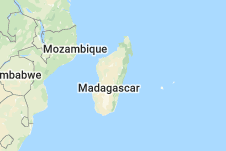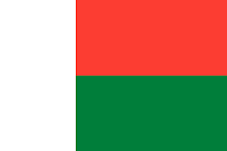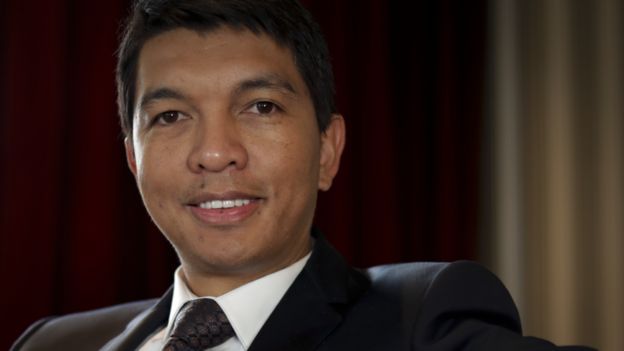
Madagascar

Brief Overview
Madagascar, a country in southern Africa located in the Indian Ocean, east of Mozambique, is the fifth largest island in the world, with a land mass of 587,000 km2 and 25.6 million inhabitants. Despite having considerable natural resources, Madagascar has among the highest poverty rates in the world.
Political Context
The presidential elections were held peacefully in January 2019 and marked the first political alternation of power in Madagascar. President Rajoelina won 55.6% of the votes and leads the country alongside his Prime Minister, Christian Ntsay, and 22 ministers.
Some ministries were merged to improve public administration efficiency. The Malagasy Government is preparing its new 2019-2023 Emergency Plan based on the 13 objectives aimed at stimulating the economy and reducing poverty. The legislative elections held on May 27, 2019 delivered a massive victory to President Andry Rajoelina’s support platform, with 84 of the National Assembly’s 151 seats. Commune-level elections to elect 1,695 mayors are slated for November 27, 2019.
Economic Situation

Republic of Madagascar
Capital: Antananarivo
Population: 25 million
Area: 587,041 sq km (226,658 sq miles)
Major languages: Malagasy (official), French
Major religions: Indigenous beliefs, Christianity
Life expectancy: 64 years (men), 67 years (women)
Currency: Ariary
UN, World Bank

Development Challenges
Physical Contacts of the Presidency
Name of Minister:
Address:
Telephone:
Fax:
Physical Contacts of the Prime Minister’s Office
Name of Minister:
Address:
Telephone:
Fax:
Physical Contacts of the National Assembly
Name of Speaker of the House:
Address:
Telephone:
Fax:
Physical Contacts of the Chief Of State and Cabinet Ministers
Name of Minister:
Address:
Telephone:
Fax:
Physical Contacts of the Ministry of Interior
Name of Minister:
Address:
Telephone:
Fax
Physical Contacts of the Ministry of Justice
Name of Minister:
Address:
Telephone:
Fax:
Physical Contacts of the Ministry of Foreign Affairs
Name of Minister:
Address:
Telephone:
Fax:
Physical Contacts of the Ministry of Women’s Affairs
Name of Minister:
Address:
Telephone:
Fax:
Physical Contacts of the National Human Rights Commission
Name of Minister:
Address:
Telephone:
Fax:
Physical Contacts of the Police
Name of Inspector General:
Address:
Telephone:
Fax:
Physical Contacts of the Military
Name of Inspector General:
Address:
Telephone:
Fax:
Important Information of Key Human Rights Issues in Madagascar
Number Prisons in Madagascar
Number Prisoners in Madagascar:
Secret Detention Centres:
Police Stations in Madagascar
What are the current and ongoing human rights issues in Madagascar?
(1) Freedom of the Press
(2) Human Rights Defenders Issues
(3) Impunity
African Union (AU)
Joined the OAU in 1987
Signed the Constitutive Act of The African Union on:
Ratified:Instrument Deposited:
Signed:
Ratified:
Instrument Deposited:
Signed:
Ratified:
Instrument Deposited:
Signed: –
Ratified: –
Instrument Deposited: –
4.Protocol on Amendments to the Protocol on the Statute of the African Court of Justice and Human Rights
Signed: –
Ratified: –
Instrument Deposited: –
Signed: –
Ratified: –
Instrument Deposited: –
Signed: –
Ratified: –
Instrument Deposited: –
Signed: –
Ratified: –
Instrument Deposited: –
Signed: –
Ratified: –
Instrument Deposited: –
Signed: –
Ratified: –
Instrument Deposited: –
Signed: –
Ratified: –
Instrument Deposited: –
Signed: –
Ratified: –
Instrument Deposited: –
Signed: –
Ratified: –
Instrument Deposited: –
Signed: –
Ratified: –
Instrument Deposited: –
Signed: –
Ratified: –
Instrument Deposited: –